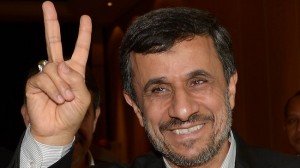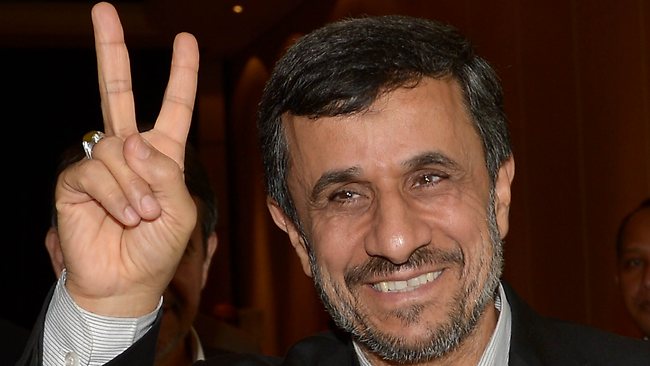
Photo : Iranian President Mahmoud Ahmadinejad (AFP- Photo)
The Minister of Foreign Affairs released a statement on Friday clarifying Egypt’s relationship with Iran.
Mohamed Kamel Amr said that Iran is “a regional power that no one can ignore, but there are determinants of the relationship and Egypt has fixed limitations and is committed to them”.
The statement outlined these limitations, of which there are three. The first is the policy of non-interference in another country’s internal affairs and no tolerance for another country interfering in internal Egyptian affairs.
The second limitation specifies “no sectarian activity in other countries”. The third limitation is specific to Egypt’s policy on security in the Gulf. Kamel Amr equated Gulf security to Egyptian security and added that “Cairo will not have relations with any party at the expense of the security of the Gulf and will not allow any side to tamper with the security of the Gulf”.
The foreign minister’s statement comes following growing concern from the United States over Iran’s recent activity, including its nuclear programme. US State Department spokesperson Victoria Nuland said on 4 February that Ahmedinejad’s recent visit to Cairo was an “opportunity for the Egyptian Government to give him the same strong messages… about their nuclear behaviour, about their terrorist behaviour, et cetera”.
Since President Mohamed Morsi’s inauguration last year, relations between Egypt and Iran seem to have grown stronger. Relations under the former Egyptian regime were almost non-existent, but both heads of state have recently made historic visits to each other’s country.
Since the regime change in Egypt, Iran has been permitted to use the Suez Canal linking the Red Sea and the Mediterranean Sea. Daily News Egypt recently reported that Iran was using the canal to trade oil and sometimes weapons with Syria.
Last week, Iranian state news agency FARS published a letter allegedly sent to Morsi by advisors to the Iranian Grand Ayatollah. The letter offered Morsi advice on building an Islamic state. The presidency denied that Morsi received such a letter through its official Twitter account on Thursday.
In December members of the Gulf Cooperation Council called on Iran to stop its “continued interference” in the internal affairs of Gulf States. Tensions between Shi’a and Sunni populations in Gulf countries such as Bahrain have increased over the last two years. Iran is a Shi’a state and the Sunni minority holds power in the Gulf, although the Shi’a are in the majority in some Gulf countries.
Follow Joel Gulhane on Twitter @jgulhane

